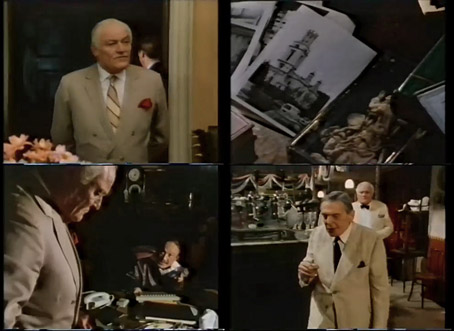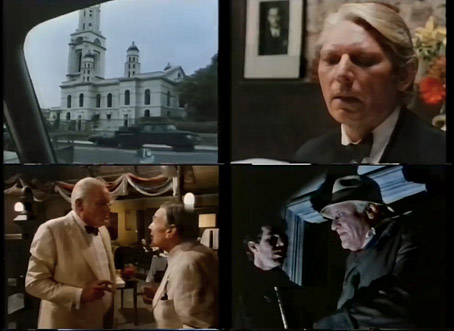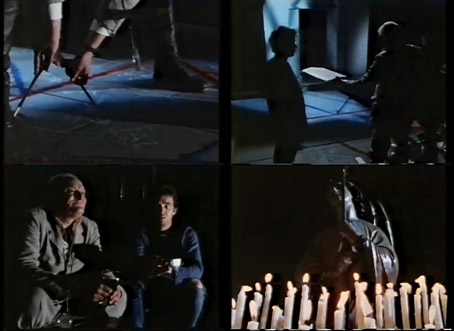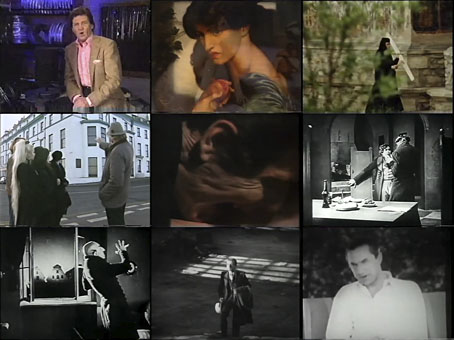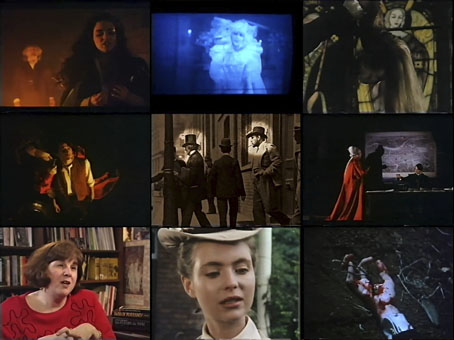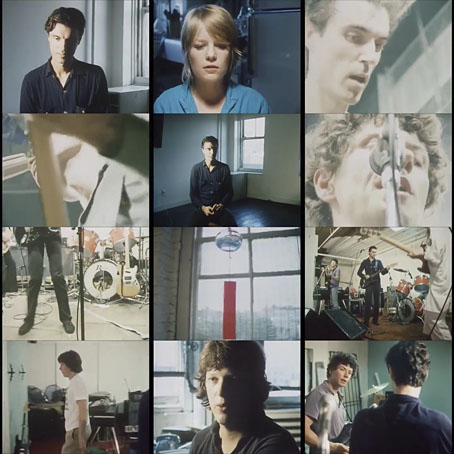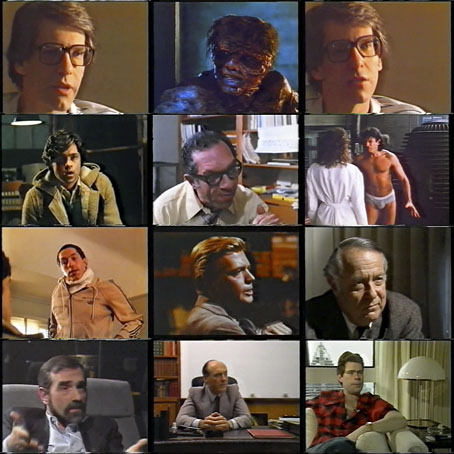The Gourmet (1986), an original television drama written by Kazuo Ishiguro and directed by Michael Whyte, has long been in the top ten of TV films I was hoping would turn up on YouTube, and here it is at last. With a running time of under 50 minutes this is shorter than one-off dramas tend to be but its plus points are considerable, the first of which is its being an early yet neglected work by the Nobel Prize-winning author. The gourmet of the title is Manley Kingston, played by the inimitable Charles Gray in one of his few leading roles. Gray inhabits the part of the preoccupied and obsessed Kingston so well the character might have been created with him in mind; he’s even more imperious and commanding here than he was as Mycroft Holmes in the Granada TV Sherlock Holmes adaptations being made around the same time.
Ishiguro’s script presents us with a world of competitive international gourmets whose palettes are so jaded that their search for new tastes propels them to increasingly outré extremes, up to and including the consumption of human flesh. In a lesser drama this might be the shocking end revelation but the long-pig scene is a brief and wordless reminiscence on the way to Kingston’s ultimate gustatory experience, the devouring of a ghost. The film is almost worth watching solely for the moment when Gray enunciates the words “Not of this Earth?!” after being informed of the spectral meal by one of his gourmet associates. Another associate, played by David Rappaport (in an upper-class role for once, albeit with a dubbed voice), provides Kingston with the directions to a church where a suitable phantom may be found. The building isn’t identified but Hawksmoor aficionados will recognise it as St. George in the East, an apt location not only for the sinister quality the Hawksmoor churches acquired in the wake of Peter Ackroyd’s celebrated novel, but also for the building’s smaller towers which are always described as resembling pepper pots. I used to think the Hawksmoor church was a coincidental choice of location but Ackroyd’s novel had been discussed and partly dramatised on The South Bank Show the year before The Gourmet was made; the actor who played the architect’s hapless assistant in the dramatisation was Mick Ford, the same actor who appears in The Gourmet as a homeless man enjoined by Kingston to assist him in his ghost-catching ritual.
Despite its grotesque elements, The Gourmet isn’t an overt work of horror, which no doubt explains why the film is never mentioned in lists of neglected TV dramas. Watching it again I was less interested in the genre elements than the interplay between Kingston’s abstracted fervour and the human beings he ignores while pursuing his quarry. The latter encompasses the fellow gourmets who regard him as a world authority, his wife (who he doesn’t kiss when he leaves the house), his chauffeur (whose name he never remembers), and the derelicts who are also led to the church by hunger, queuing for a bowl of soup and a bunk in the crypt. Seen today, the gulf of inequality, and the self-indulgence of Kingston’s pursuit for the rarest of foods while people around him are starving, may be taken as a critique of Thatcherism as well as a foretaste of the future. The scenes outside the church show the East End of London as it was before its ongoing and unending redevelopment, when a new breed of rapacious appetites would arrive to sweep the homeless from those desirable riverside properties. The real ghost-eaters, the devourers of London’s history, have been consuming the capital ever since. (Thanks to Amelia for alerting me to this!)
Previously on { feuilleton }
• Terror and Magnificence

